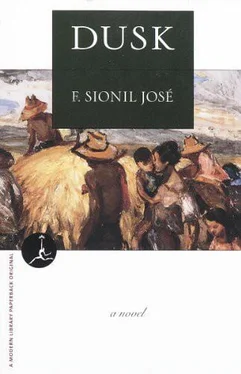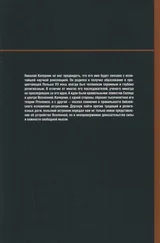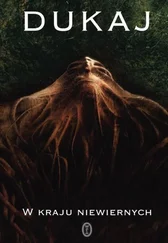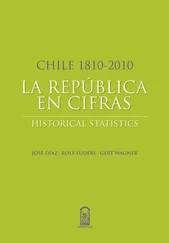“And who is Eustaquio?”
“Your acolyte, Apo,” the old man said. “He tried to serve you as well as he could, but …”
The young priest turned to him. “I know. And I suppose that you think he has become a Christian because he served here, don’t you? And that you are one, too?”
“I am, Apo,” Ba-ac said, bowing. “By Mary’s breath, and Joseph’s and Jesus’, too.”
“How gratifying! And your son Eustaquio. He is in your house now, among his carabaos . Did he really think he was bright enough to be a priest?”
“It was Padre Jose, Apo,” Ba-ac said. “The old priest, he told me he wanted Eustaquio to be a priest …”
The young priest paced the floor. It was now nearly dark, but Ba-ac could still see everything clearly, the white underwear, the brute hands.
“Soon, they will be aspiring for membership in the order. Then they will want to be bishops — vicars of Christ. Soon, they will grab the habiliments not just of the Church but of temporal power. There is no ending to that. Soon—” He sighed and turned to the old man who was still kneeling before him. “Do you really think that you Indios are educated enough to understand the meaning of government or of God?”
Ba-ac did not answer; he had not come here to be told that his brain held only so much. He did not have the education of this priest, or of his son, but this he knew, that Eustaquio was asked by Capitán Berong to teach his daughters, that Padre Jose — and he was old and wise — wanted Eustaquio to be more than just a sacristan.
“I do not ask that you pity Eustaquio, Apo,” he said. “I came here for the land — to beg you to allow us to stay one more harvesttime. We have lived in Po-on all our lives, Apo. My father, my grandfather. And the last harvest was not good, as you know. That was why your share, Apo, was not as much as it should have been. The drought — that was the reason. We did not keep anything you did not know about. We did not steal.”
The priest looked at him, at the right hand that was missing. “I did not know Eustaquio came from a family of thieves. Padre Jose — he was too old to be sound of mind. He should not have trusted your son too much, given him ideas that made him feel important. It should not be difficult for you to survive — with your special talents, you will not starve. The land should then go to a farmer better equipped — with two hands. But tell me truthfully, do you people really have two hands? No, you have four feet like the water buffalo.”
Ba-ac, still kneeling, let the words sink; they were lies, they were poison, and it was a holy man uttering them.
“All of you,” the priest said softly, “you were born to be like the carabao , to serve us. The little knowledge you got from us — it is dangerous. You will soon imagine yourselves as Spaniards, and because you know it cannot be, you will soon be thinking like those robbers who want the country for themselves, filibusters, rebels.”
“No, Apo,” Ba-ac said, knowing what the priest was leading to. “My son, he is a true Catholic. You cannot find a more loyal servant than him.”
The priest glowered at him. “So you see why you must leave this place. I don’t want contagion here.”
There was no use arguing; perhaps, if he appealed to his sense of mercy. “All our lives, Apo,” Ba-ac said in desperation, raising his left hand. “We have lived in Po-on, working faithfully for you. Please, until the next harvesttime is over. We have very little food, Apo. In God’s name—”
The blow that blazed across his face did not really hurt the old man, although it knocked him to the floor.
“Don’t blaspheme, you wretch,” the priest said evenly. Ba-ac was prostrate at the feet of the young priest and when he opened his mouth to continue with his pleading, he tasted salt. He brought his palm to his lips, and in the shadowy light, the blot of bright and living red was distinct. He shook his head and rose slowly, leaning on the side of the cabinet behind him. His left hand touched something solid and in the corner of his eye, he saw it was the crucifix. The moment of truth, of revelation, and he grasped it.
The young priest was too stunned to react; what could this armless old man possibly do, this ignorant Indio with fire in his eyes? He did not back away, although he easily could have done so, so that when the silver instrument crashed into his face, he did not even raise his hands to defend himself. He fell, not noisily like a tree, but just as slowly, and even when he was already slipping, Ba-ac raised the instrument again, and when he finally stopped to look at it, silver had turned to red. The young priest was unconscious, prostrate on the floor, and Ba-ac bent over him and struck again and again at the Castilian brow, the blue eyes, till the whole face was pulped.
Ba-ac stood over the man, not quite believing that he was dead. Blood still oozed from the wound in the face and neck. He glanced at the hairy arms which were nerveless, the powerful torso that seemed to dissolve into a black blur as the night encompassed everything. The Angelus must have already tolled, but he had not heard it. He must flee, not just this church, not just Po-on, but Cabugaw. But to where? He breathed deeply, and felt very light, as if the crushing weight upon his chest which had long oppressed him had finally been lifted by this single act.
The sense of elation stayed, but it was soon compounded with fear, not just for himself but for his poor, sinless family, and his younger brothers as well. He did not try hiding the dead priest under the bed, although it did cross his mind to do so — anything to delay the discovery, anything to give him time. But did he or Po-on really have this precious time? They had all been doomed from the very beginning, their fate foreordained because they had dark skins, because their noses were flat.
He breathed deeply again and tried to calm the trembling of his hand, the strangling in his throat, the earthquake within. Then he walked calmly to the huge wooden door, down the black stairway to the alcove. The young acolyte who had sent him upstairs was still there.
The acolyte was perhaps only twelve, or eleven even. “Did you see him, Tatang?” he asked.
Ba-ac nodded. “He did not want to see me — he said he was going to sleep …” He wanted to say more, but was afraid lest the tremor in his voice betray him.
At last, he reached the door and outside, in the wide yard, he could pick out the goats still tied to their stakes and grazing grass. He walked slowly, as if on a Sunday stroll; it suddenly seemed as if the churchyard were without limit, like the river delta he would have to cross. When he got to the fringes of the town where the houses were made of bamboo and buri palm and not of hardwood and stone, he walked faster, but without seeming to run. It was when he reached the open field that he began to run out of the reaches of Cabugaw. He was surprised at his stamina. He was consumed by only one thought: to flee as fast as he could, alone if that was possible. He was a dead man and it was a dead man who would return to Po-on, to Mayang and her quibbling, to the boisterous boys who bore his name.
As he crossed the river, he slipped on a moss-covered stone. But he rose quickly, then ran again, his lungs close to bursting, his throat rasping dry. Across the river finally, he paused on the bank. Was that the tolling of bells? He keened — yes, the church bells of Cabugaw were tolling as they often did when there was a fire, a calamity that must be announced, a Moro raid, although it had been ages since there was one. The tolling was long, insistent. They had found the body! Did the boy tell them that he was the last man to see the young priest? And did not the boy recognize him? Indeed, who would fail to recognize him since there were not all that many one-armed men in the entire Ilokos.
Читать дальше












